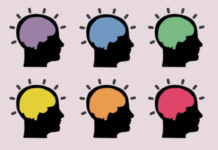Why the Rise of Mental Illness? Pathologizing Normal, Adverse Drug Effects, and a Peculiar...
In just two decades, pointing out the pseudoscience of the DSM has gone from being an “extremist slur of radical anti-psychiatrists” to a mainstream proposition from the former chairs of both the DSM-3 and DSM-4 taskforces and the director of NIMH. In addition to the pathologizing of normal behaviors, another explanation for the epidemic — the adverse effects of psychiatric medications — is also evolving from radical to mainstream, thanks primarily to the efforts of Robert Whitaker and his book Anatomy of an Epidemic. While diagnostic expansionism and Big Pharma certainly deserve a large share of the blame for this epidemic, there is another reason.
Do Psychiatrists Harm their Patients out of Stupidity?
I think it is fair to say that many psychiatrists display an enormous lack of good sense and judgment. Psychiatrists are in the firm grip of a collective force field of an almost fundamentalist belief system that blinds them to the harm they unwittingly do and the human rights abuses they commit.
Part II: Michelle Starts Prozac and Sees the Devil
By 2011, anyone who read the scientific literature would have known that children cannot tolerate SSRIs and should not be given them. Neither Conrad nor Michelle seemed to have been warned about the common adverse effects (such as nightmares and compulsive suicidality) of the SSRI antidepressants they were on.
Enslaved to Abilify
A very gifted and compassionate friend recently said that she feels enslaved to Abilify - that she has tried to taper off it several times but always ends up slipping into an extreme state, no matter how slow she tapers. She said this repeated experience makes her feel like a slave, because she has to go back on the drug to stop the very intense extreme state induced whenever she tries to stop taking it.
The Sociological Study of Mental Illness: A Historical Perspective
Mental illness, as the eminent historian of psychiatry Michael MacDonald once aptly remarked, “is the most solitary of afflictions to the people who experience it; but it is the most social of maladies to those who observe its effects.” If psychiatry has typically, though far from always, focused on the individual who suffers from various forms of mental disorder, for the sociologist it is - naturally - the social aspects and implications of mental disturbance for the individual, for his or her immediate interactional circle, for the surrounding community, and for society as a whole, that have been the primary intellectual puzzles that have drawn attention.
What Should We Really Call Psychiatric Drugs?
There is no rational way to argue against putting psychiatric chemicals into the category of neurotoxins. All psychiatric substances alter “the structure or functions of the nervous system,” disrupt “the normal function of nerve cells” and act “specifically on nervous tissue.” It is time to clean up the misleading mess of words in psychiatry.
Psychiatric Diagnosis is a Fraud: The Destructive and Damaging Fiction of Biological ‘Diseases’
Everywhere you turn, you see “OCD, ASD, MDD, ADD, ADHD, BPD, GAD, PD, SAD, PTSD, NPD," etc. The problem is not limited to this acronym soup, but the pseudo diagnoses they represent. Patients today get stained by the specious medical diagnoses of biological psychiatry. And furthermore they are brainwashed to believe that these fictitious brain ‘diseases’ are genetic. Biological psychiatry treats people like they are mechanical objects, renaming them almost as they are re-branding products. The one I like the best is the renaming of ‘manic-depressive’ to ‘bipolar.’ Instead of a name which accurately describes the states of suffering, it was turned into something mechanical — a battery with two poles. We’ve gone from something human to something Frankensteinian.
Why I Resigned From The Mighty
The apprehensions I'd initially had about joining the team returned to my mind. I'd allowed my original cautious disposition to be overtaken by optimism when I had accepted a position of contributing editor with The Mighty, but my hopes were about to be dashed.
Makers of Risperdal Sued for Breast Development in Boys
Thousands of boys and young men are lined up in courthouses around the country to sue J&J for gynecomastia caused by taking Risperdal as young children. The condition is irreversible except by surgical removal. Collectively, they have become known as the Risperdal Boys.
55 Steps to Informed Consent
55 Steps is a new film based on a true story that centers around two women: Collette, a lawyer with a tendency to work long hours, and Eleanor, who has spent far too much time incarcerated in hospitals. Over the course of five years, Collette fights for Eleanor’s right to choose whether or not she takes psychiatric drugs. This film is imperfect, but its importance can’t be ignored.
Alternatives to Suicide: Strategies for Staying Alive
For more than 7,300 days of my life, waking up the next morning required me to make a conscious choice to diligently pursue something — anything — other than my impulse to die. Maybe the best teachers of how to avoid suicide will not be the people who are afraid someone else will die, but those of us who can explain how and why we regularly choose to live.
Neurodiversity is Dead. Now What?
The neurodiversity movement is a public relations campaign that emphasizes the positive qualities associated with some presentations of autism—creativity, increased tolerance for repetition, enhanced empathy, and exceptional memory—while erasing or minimizing the experiences of autistics who are severely disabled.
Forced “Treatment” is Torture
I have opposed involuntary treatment for my entire career and first began criticizing it in the medical literature in 1964. As Thomas Szasz originally taught, involuntary psychiatric treatment is unconstitutional and an assault on basic human rights. I am also against it on scientific grounds, because after hundreds of years, this violation of human rights has generated no scientific studies to show that it benefits its victims. I am encouraged by the excellent blog by Peter C. Gøtzsche on MadinAmerica.com, which inspired me to put a new section, Psychiatric Coercion and Involuntary Treatment, on my website, and to compose these further observations of my own.
Antipsychotics and Brain Shrinkage: An Update
Evidence that antipsychotics cause brain shrinkage has been accumulating over the last few years, but the psychiatric research establishment is finding its own results difficult to swallow. A new paper by a group of American researchers once again tries to ‘blame the disease,’ a time-honoured tactic for diverting attention from the nasty and dangerous effects of some psychiatric treatments. People need to know about this research because it indicates that antipsychotics are not the innocuous substances that they have frequently been portrayed as. We still have no conclusive evidence that the disorders labeled as schizophrenia or psychosis are associated with any underlying abnormalities of the brain, but we do have strong evidence that the drugs we use to treat these conditions cause brain changes.
The Astonishing Zyprexa Cover-Up
Back in 2006, when my son Franklin was in his late twenties and living in a group home in the Boston area, he refused to take Clozaril any more because of the required bi-weekly blood draws. His doctor prescribed Zyprexa as a substitute, and Frank suddenly began to gain weight ... a lot of weight. Later, I would learn that UCLA psychiatrist Dr. William Wirshing had said of Zyprexa prior to its 1996 approval by the FDA: “It is just un-stinkin’-believable. It is the best drug for gaining weight I’ve ever seen.” The doctor indicated that taking ten milligrams of the medication was equivalent to ingesting 1,500 extra calories per day. My outrage knew no bounds.
Hereditary Madness? The Genain Sisters’ Tragic Story
The story of the Genain quadruplets has long been cited as evidence proving something about the supposed hereditary nature of schizophrenia. But who wouldn’t fall apart after surviving a childhood like theirs? The doctors attributed their problems to menstrual difficulties or excessive masturbation — anything except abuse.
Trauma, Psychosis, and Dissociation
Recent years have seen an influx of numerous studies providing an undeniable link between childhood/ chronic trauma and psychotic states. Although many researchers (i.e., Richard Bentall, Anthony Morrison, John Read) have been publishing and speaking at events around the world discussing the implications of this link, they are still largely ignored by mainstream practitioners, researchers, and even those with lived experience. While this may be partially due to an understandable (but not necessarily defensible) tendency to deny the existence of trauma, in general, there are also certainly many political, ideological, and financial reasons for this as well.
“Three Identical Strangers” and the Nature-Nurture Debate
Three Identical Strangers is a riveting film describing the story of identical triplets separated at six months of age and reunited in early adulthood. Their story provides no evidence in support of the genetic side of the nature-nurture debate, but it does supply some evidence in favor of the environment.
Why I’m Not Celebrating Being PMDD-Free
I’m not celebrating because so many of my sisters are still stricken by this disease. They're remanded to the care of mental health professionals who ply them with therapy and scripts for SSRIs, SNRIs, and benzodiazepines, none of which offer long term relief from the horrors of PMDD.
The Most Dangerous Thing You Will Ever Do
I am a psychiatrist and I have been watching my profession deteriorate for many decades. This is my most direct written statement about the dangers of stepping inside a modern psychiatrist’s office. My conclusions are the culmination of mountains of research authored by me and by an increasing number of other psychiatrists, scientists and journalists.
Jordan B. Peterson’s Support of Corporal Punishment for Children: A Critique
In his book 12 Rules for Life, supposedly based on "cutting-edge research," Jordan Peterson attempts to justify the hitting of children as a form of discipline. But Peterson does so without citing a single study to support his view. In fact, this entire section of the book is bereft of any reference to any research supporting the effectiveness of corporal punishment.
How I Overcame an Episode of SSRI-Induced Suicidal Depression
My journey into the dark night of the soul was launched by an adverse reaction to the drug Effexor. Taking this medication triggered a maddening condition called Akathisia--a syndrome characterized by inner restlessness and agitation. My body was possessed by a chaotic, demonic force which led to my shaking, twitching and pacing back and forth across the room. The force of my symptoms was so great that I considered the possibility that I might be possessed by some malevolent demon. What made the situation even worse was that my experience was discounted by the psychiatric community.
Response to Criticism of Our Serotonin Paper
Criticisms of the paper were contradictory. Some psychiatrists said that no one ever really believed the serotonin theory. Yet the public does believe it, and are very surprised to learn that it is a myth.
Three Suicides: Honoring Lives Lost to Benzodiazepines
I am still trying to reconcile what these chemicals are capable of, how the urge can morph into an action, how we maybe just don’t understand suicide all that well. For me, the suffering was so intense it was too painful to stay alive. I understand how my friends felt in their last moments.
Can Transcranial Magnetic Stimulation (TMS) Hurt You?
What I was able to learn about the injury inflicted by TMS and the culture surrounding it is an incredible insight into the treatment itself and the nature of the medical model in its current form.


























